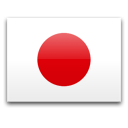What is the difference between antiviral and antibacterial face masks? Which one do you need?
Craft Cadence is a UK based cycling bags and pollution masks brand that helps commuters stay organised and breath clean air. This is part of series of blog posts covering topics surrounding pollution and the role of masks for effective filtration.
Facemasks have become increasingly popular, for obvious reasons. However, due to the surge in demand, there are a lot of new brands and products that are coming to the market, all advertising to be the best face mask to keep you safe. You may have already seen antiviral and antibacterial face masks advertised. Let’s look a bit more in-depth as to what tests and standards a textile product must pass to claim to be antiviral or antibacterial. By the end of this article, you will know which one you need and why.
Antiviral Face Masks
An antiviral product must be able to reduce viral activity, generally by causing structural damage to the surface protein of the virus or morphological change to the viral cells. This damage to the viral cells prevents it from replicating and spreading upon contact with the material.
Polygiene’s ViralOff technology is a market-leading product that is used to treat textile materials to protect it from viruses. ViralOff has been tested against Influenza A, BirdFlu, Norovirus and mostly recently Corona (SARS-CoV-2 or Covid 19 as it is commonly known), in all cases it passed the ISO18184:2019 standard test, reducing the virus by 99% over a two-hour timespan.

When looking for an antiviral face mask, ensure that the company advertises the exact viruses it has been exposed to and successfully protected against. Also, you need to make sure that they have backed up their claims by showing the details of any lab tests that the product has been subjected to.
For example, a product that has passed the ISO18184:2019 (Textiles - Determination of antiviral activity of textile products) standard has proven that it can reduce the defined viruses by 99% over a two-hour timespan. Without such standardised testing and accreditation, there is no way of you validating the claims made by the manufacturer.
The benefits of antiviral facemasks are that it adds another layer of protection, compared to woven fabric or non-woven filters alone. The antiviral treatment will reduce the virus that comes in contact with it. This means that you do not need to wash your facemask after every use and there is less risk of transmission of the virus, should you touch the face mask after use. Although no facemask can 100% protect you from any virus, buying one with an antiviral treatment will help give you a little extra peace of mind.
Antibacterial Face Masks
Antibacterial face masks will help keep the mask fresh for longer, reduce the need for you to wash it so regularly and prevent bad-smelling bacteria from building up on the inside of the mask after continuous and prolonged use. However, it is not specified certified to reduce or kill viruses.
Generally, the antibacterial treatment will be applied to the inside of the fabric, as this is where fungus and bacteria are most likely to try to grow. Treatments such as Polygiene Stays Fresh have been used on outdoor and sports clothing for years, for this very reason.
Polygienes Stays Fresh technology uses silver salt (silver chloride) to guard against and inhibit the growth of bacteria and fungi, helping to keep the garment fresher for longer. Due to its effectiveness at preventing the growth of bacteria, only a small amount is required to treat a textile material. Also, Silver chloride is naturally occurring in water and soil.

Importantly it does not interfere with bacteria naturally found on your skin and Polygiene has done intensive testing on sensitive skin, to ensure that fabrics that have been treated with Stays Fresh will not irritate your skin, even if worn for long periods.
Similar to antiviral facemasks, for a company to advertise their face mask as being antibacterial, it must have undergone independent lab testing by an internationally recognised body. One such test is the International Biodeterioration Research Group (IBRG) Tier 1 Textile Method. The method determines the basic antibacterial properties of textiles and porous materials, treated with a biocide that is said to have disinfectant or hygienic properties.
Samples are inoculated with defined suspensions of microorganisms and then incubated. The changes in the size of the populations over time on treated compared with untreated materials are used to describe the basic antimicrobial properties of the materials. The results show that the treated material retains over 99% of its original qualities and therefore is certified antibacterial.
A few other tests to look out for when searching for an antibacterial facemask are:
AATCC TM 147 - This is a test to measure the antibacterial activity on treated textile materials
ISO 20743 - (Textiles – Determination of antibacterial activity of textile products) is designed for the determination of the antibacterial activity of antibacterial finished products on absorbent or porous textiles.
Other brands offering antibacterial textile treatment
Silvadur™ antibacterial protection, developed by Dupont, is advertised as a cost-effective odour reducing fabric treatment. There is some more detail about the tests this treatment has undergone on their website.
Craft Cadence face mask with nanofiber technology
Craft Cadence is pleased to announce that our new V2 ViralOff face masks will come with both a sewn in N99 certified nanofibre filter, and the option to insert removable N99 certified nanofibre filters to further prolong the life of the mask. This is the first mask in the world (that we are aware of) to have both options available.
Most mask provider will either have the filters sewn in but not the option to insert removable filters, or allow for removable filters without a sewn in filter.
The reason why we are providing both is that a sewn in filters provides the best filtration efficiency possible as the filter covers more surface area and because it is sewn in, there is no chance for the filter to move around.
We also added a filter pocket to use removable filters further down the line because we think it is wasteful to throw away a mask once the sewn in filter has reached the end of its useful life.
We think it is the right thing for the environment to continue using the mask with removable filters for as long as it is possible. We make less money this way but it is the right thing to do.
In summary, our V2 ViralOff reusable mask will come with the following layers, soon to be released in April/May 2021:
- Layer 1: ViralOff antiviral technology on outer layer made from recycled polyester
- Layer 2: Nanofiber FFP3 (N99 equivalent) certified filter sewn in between 2 fabric layers
- Layer 3: Stays Fresh anti-odour and antibacterial inner layer from recycled polyester
- Layer 4: An additional Stays Fresh recycled polyester layer to create a filter pocket
We are also pleased to be able to provide on request:
- The FFP3 (N99) certified report of our nanofiber filters
- An internal wash report which shows that the filter loses 2% of the filtration efficiency after 10 washes. We will look to gain third party certification of the after wash filtration efficiency of the filter in the future.
- Our Polygiene ViralOff laboratory results and certification, showing that our outer layer eliminates 99% of viruses within 2 hours, including SARS-Cov-2.
Conclusion
Antibacterial facemasks will help your face mask stay fresh for longer and antiviral facemasks will be an additional tool to help keep you safe from viruses such as covid. There is no facemask on the market that can 100% protect you from any virus. However, when doing your research look out for some of the lab tests and certifications stated above as, without them, it is difficult to trust the manufacturer’s claims of their face mask being either antiviral or antibacterial.
In conclusion, the best face masks are both antibacterial and antiviral, such as Craft Cadence's reusable mask which uses both ViralOff and Stays Fresh technologies. There is no one single treatment or textile fabric that has the requisite properties to fight against bacteria and viruses. However, facemasks with more than one layer will allow you to benefit from the improved hygiene given by antibacterial treatment, in addition to the peace of mind provided by antiviral treatment.
Will you feel safer with a facemask that is antiviral and antibacterial? Have you seen any other face masks that advertise that they do both?






